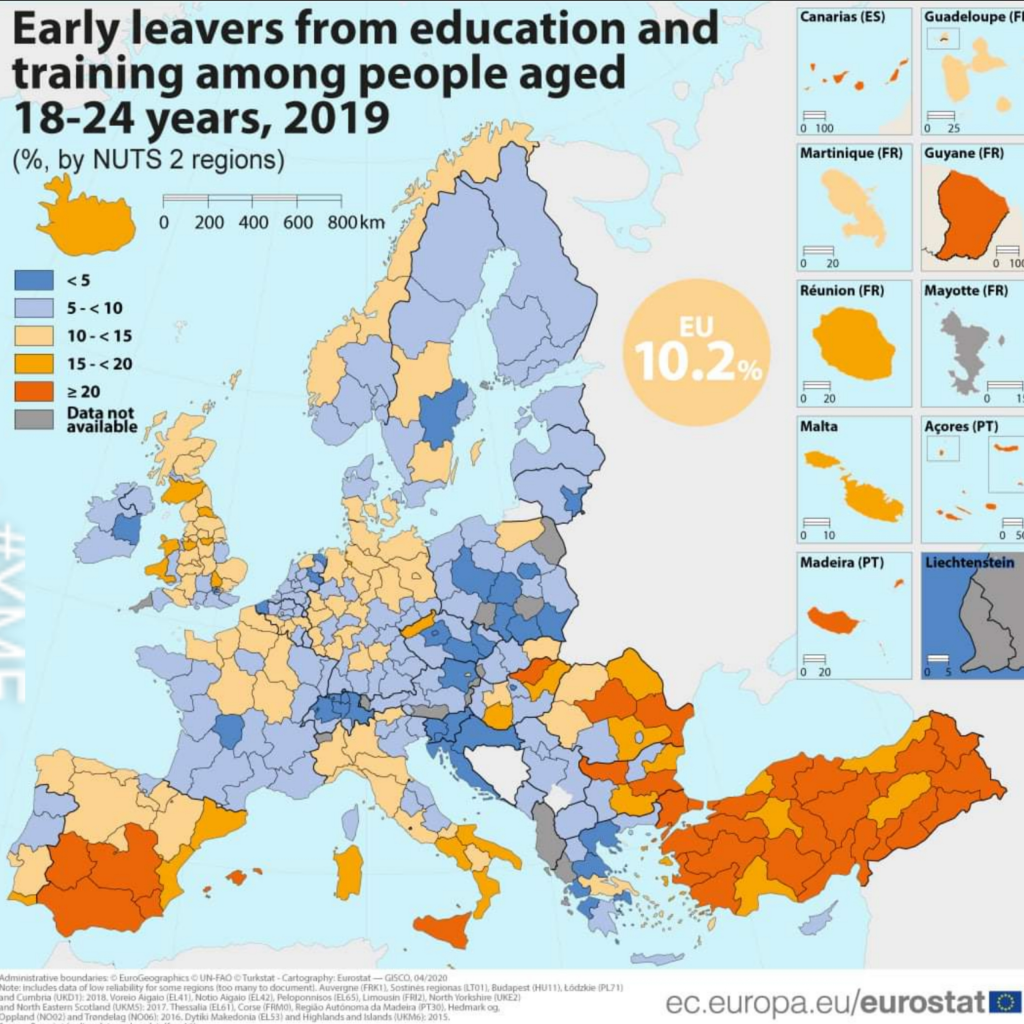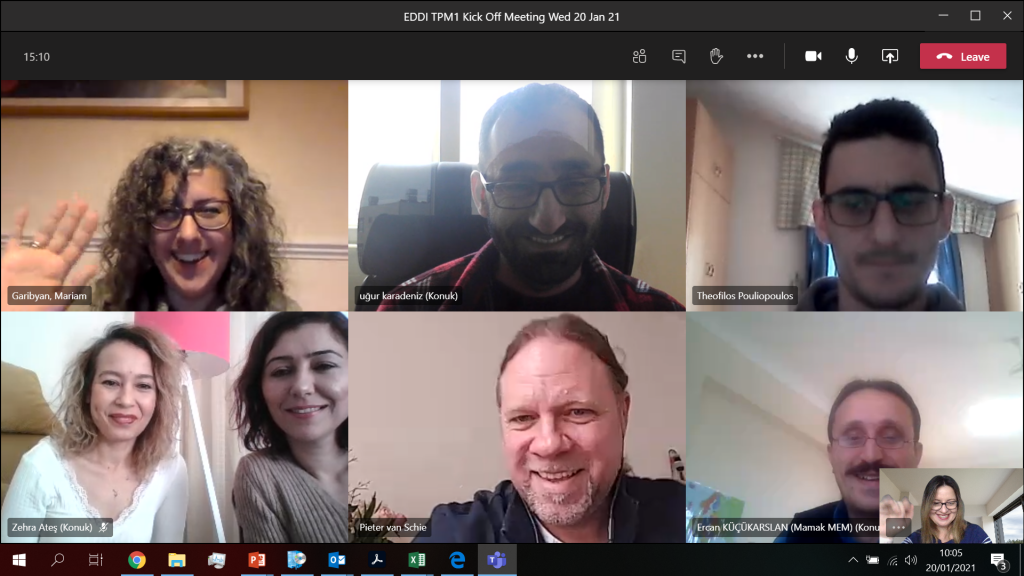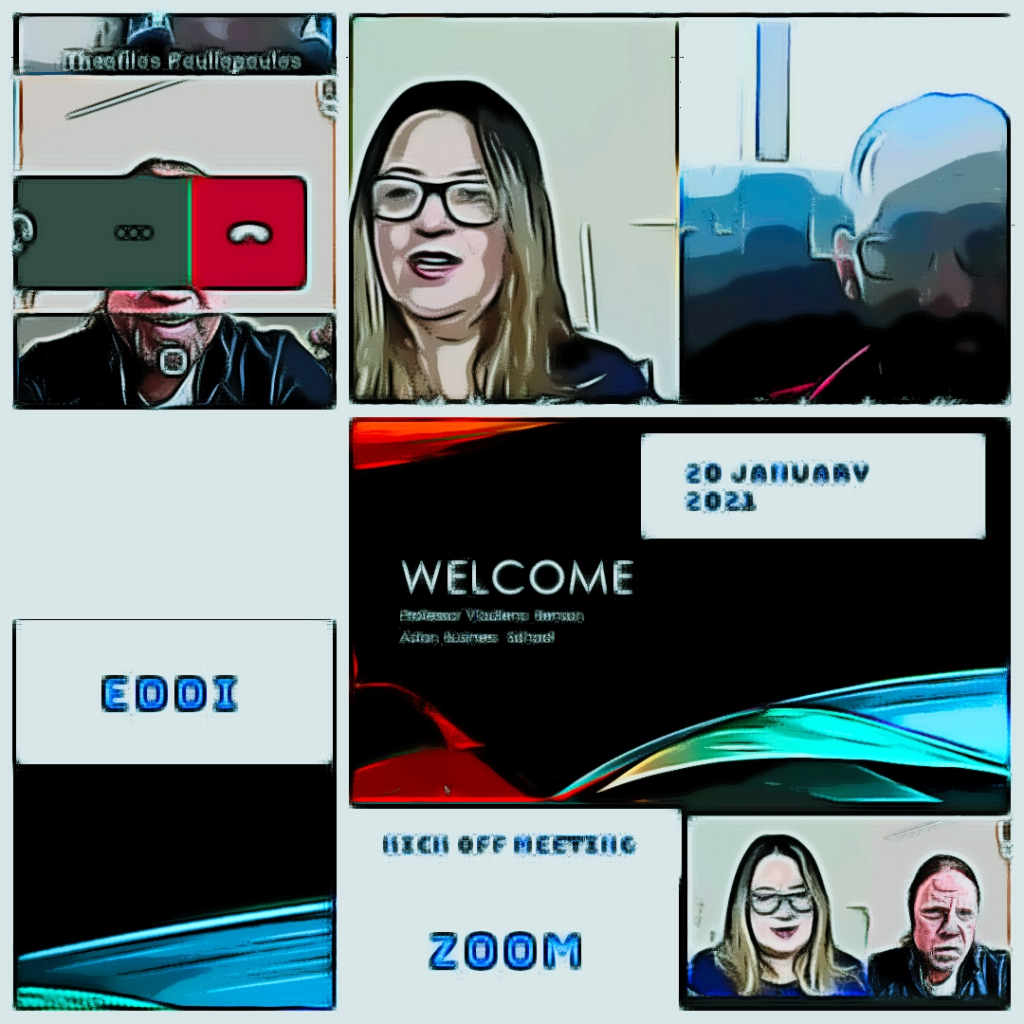Early Digital Diagnosis and Intervention (EDDI)

In line with the European Commission goals ( ETAT2020, EC 2018) to reduce the early education leavers statistics, the project “Early Digital Diagnosis and Intervention(EDDI)” aims to improve student retention rates. Today we officially kicked off EDDI by a digital Teams meeting.

Zoom Kick Off 20 January 2021
on January 20th we officially kicked off EDDI through Teams. The project is coordinated by the Aston University (UK). Other partners are from Greece (2), Turkey, Netherlands and French Polynesia.
The problem of early school leaving (ESL) affects societies, economies and higher education as underscored by UNESCO, Sustainable Development Goals (2019). With schools struggling with a significant number of students who give up on education before finishing secondary school, the aim of the EDDI consortium is to find a way to keep students in education.

Aims
The EDDI project aims to help teachers, families and students to better understand the causality and consequences of leaving education in order to find possible solutions to the Early School Leaving (ESL) problem. We believe that only a comparative analysis of practices and interventions between countries which do well in the ESL statistics and those at the opposite end of the spectrum would deliver a sustainable solution to the ESL problem. Besides economic and social mobility impacts, ESL has been linked to bullying, violence or micro criminality. ESL is a threat to the successful future development of the workforce and community prospects. In preparation to the project proposal, the literature review showed that the drivers to the ESL vary and can be countered by engaging a number of supporting stakeholder groups.

Target groups
This project is the first step toward developing a clear, holistic community-wide action plan providing early diagnostics to the ESL problem. The students involved in the project are 14-18 years old and they will work in mixed international groups. The target groups addressed are teachers working with and students who have the risk to leave the school during the school year for different reasons and students showing signs of risk. The target group will include students from socially and economically disadvantaged backgrounds forming a representative sample of 300 in total from 5 different countries. The support of with the support of local social agencies, educational authorities and ICT solution partners has been secured ahead of the EDDI commencement.
